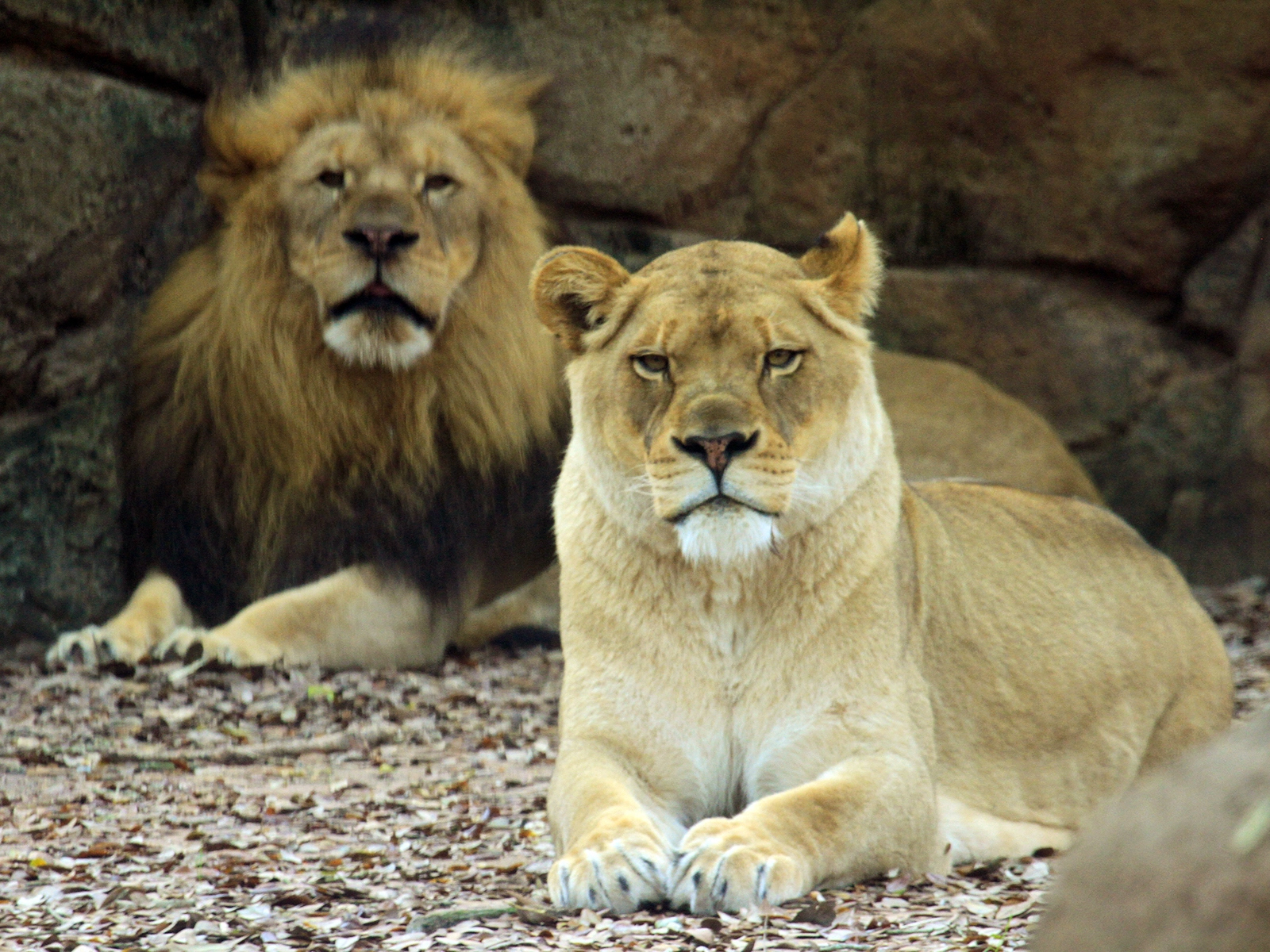African Lion
Panthera leo
Class
Mammalia
Order
Carnivora
Family
Felidae
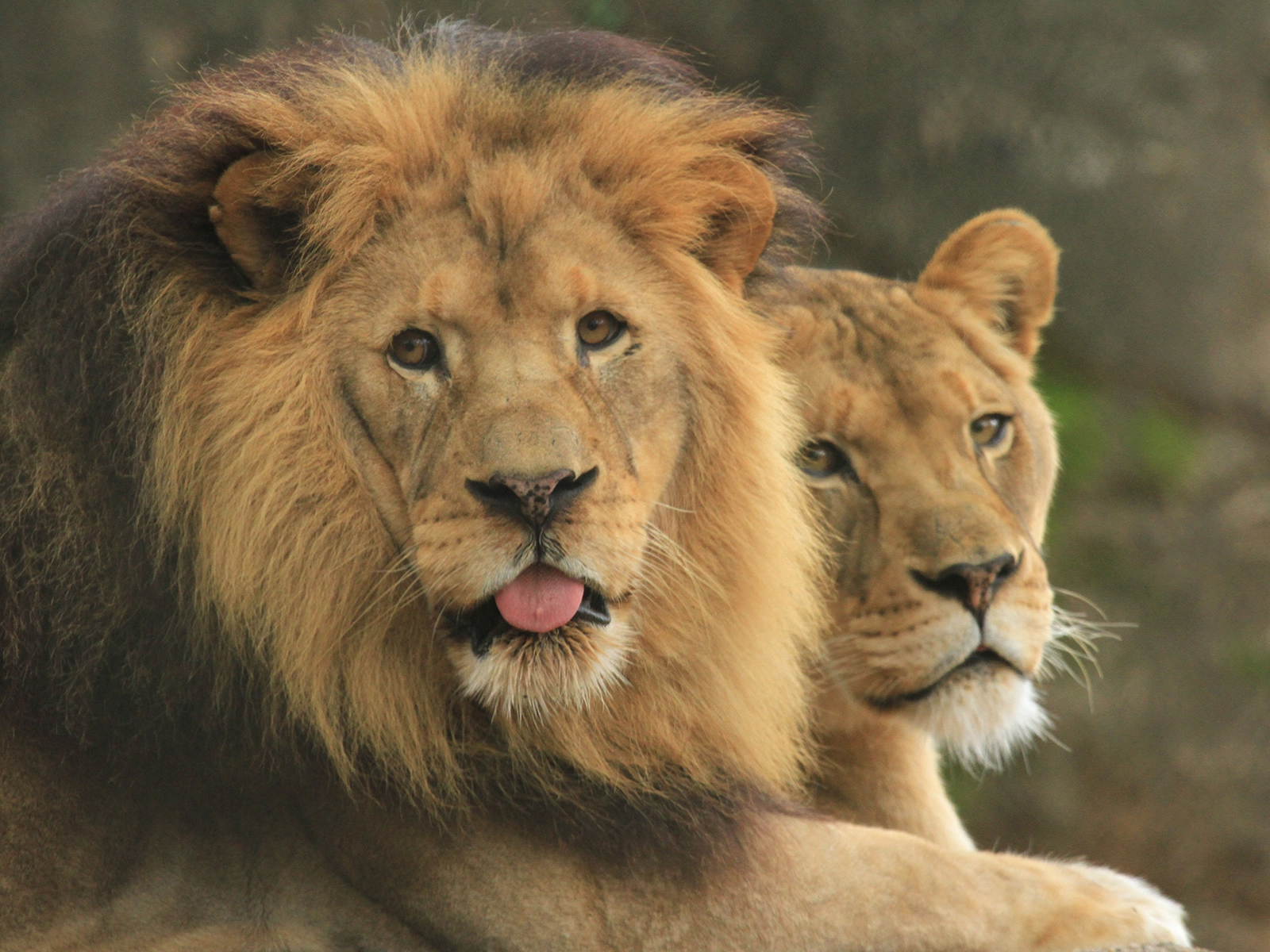
Mammalia
Carnivora
Felidae
Sub-Saharan Africa
Male: 5.5 - 8 ft, 330 - 550 lbs
Female: 4.5 - 5.5 ft, 265 - 400 lbs.
Grasslands and semi-arid plains
1 to 6 cubs
Antelopes, gazelles, warthogs, smaller carnivores, and occasionally Cape buffalo, giraffe, and young elephants
Vulnerable
Males can roar at about one year old, and females can roar a few months later. Their roar can warn off intruders or reunite scattered pride members.
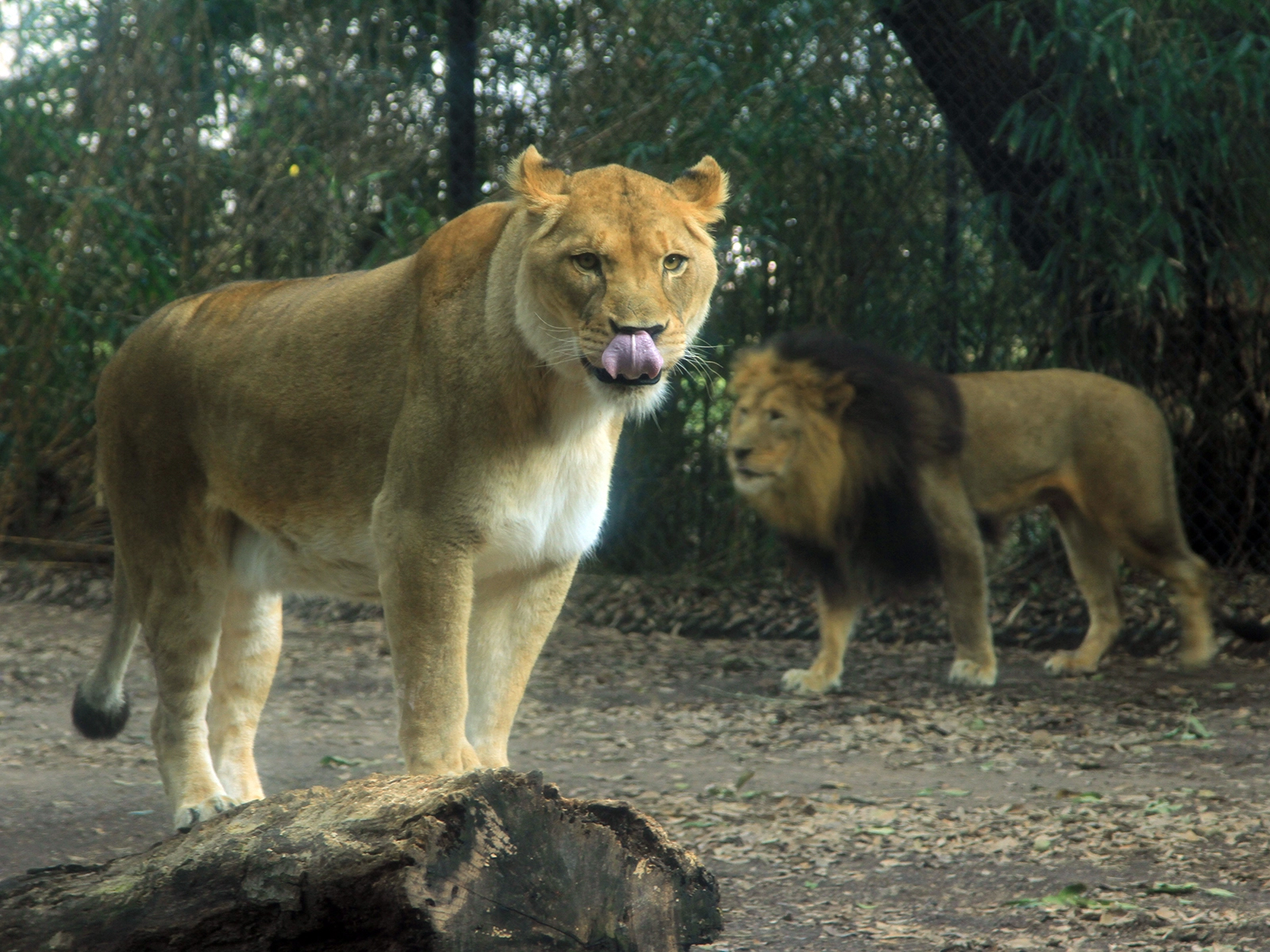
Lions are the only true social cats. They live in groups called prides. The core of the pride is the sisterhood of lionesses who share a strong, lifelong bond. They raise their cubs together, and it is not uncommon for a lioness to nurse the cubs of another.
Young males eventually leave their natal pride to establish their own or take over an existing one. A pride's territory is defended by the resident males, who patrol and mark their boundaries.
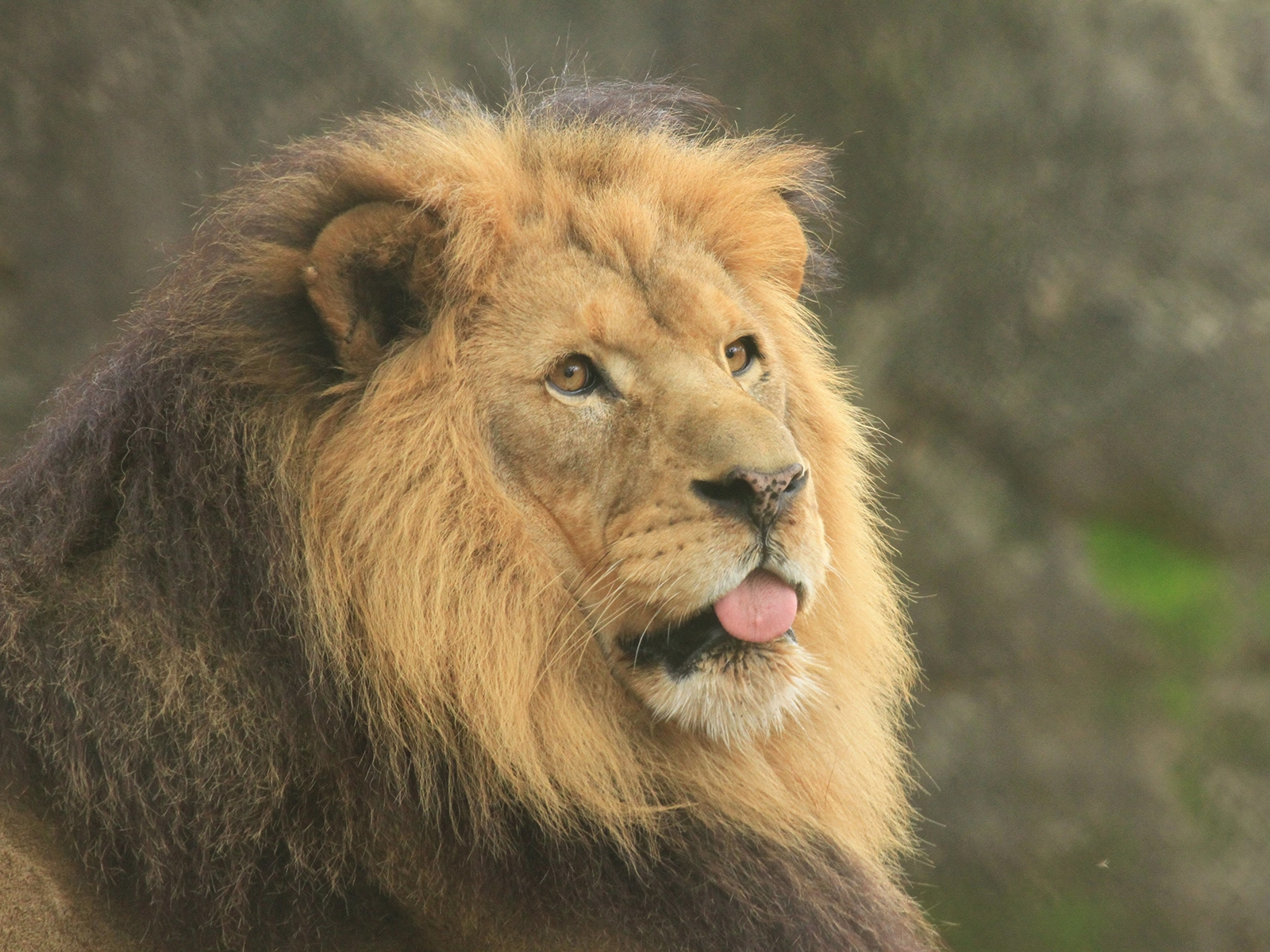
Male lions defend their pride's vast territory by patrolling the area, which can cover about 100 square miles. A thick mane helps males look bigger and protects their throat.
A male lion can eat about a quarter of his body weight at one meal.
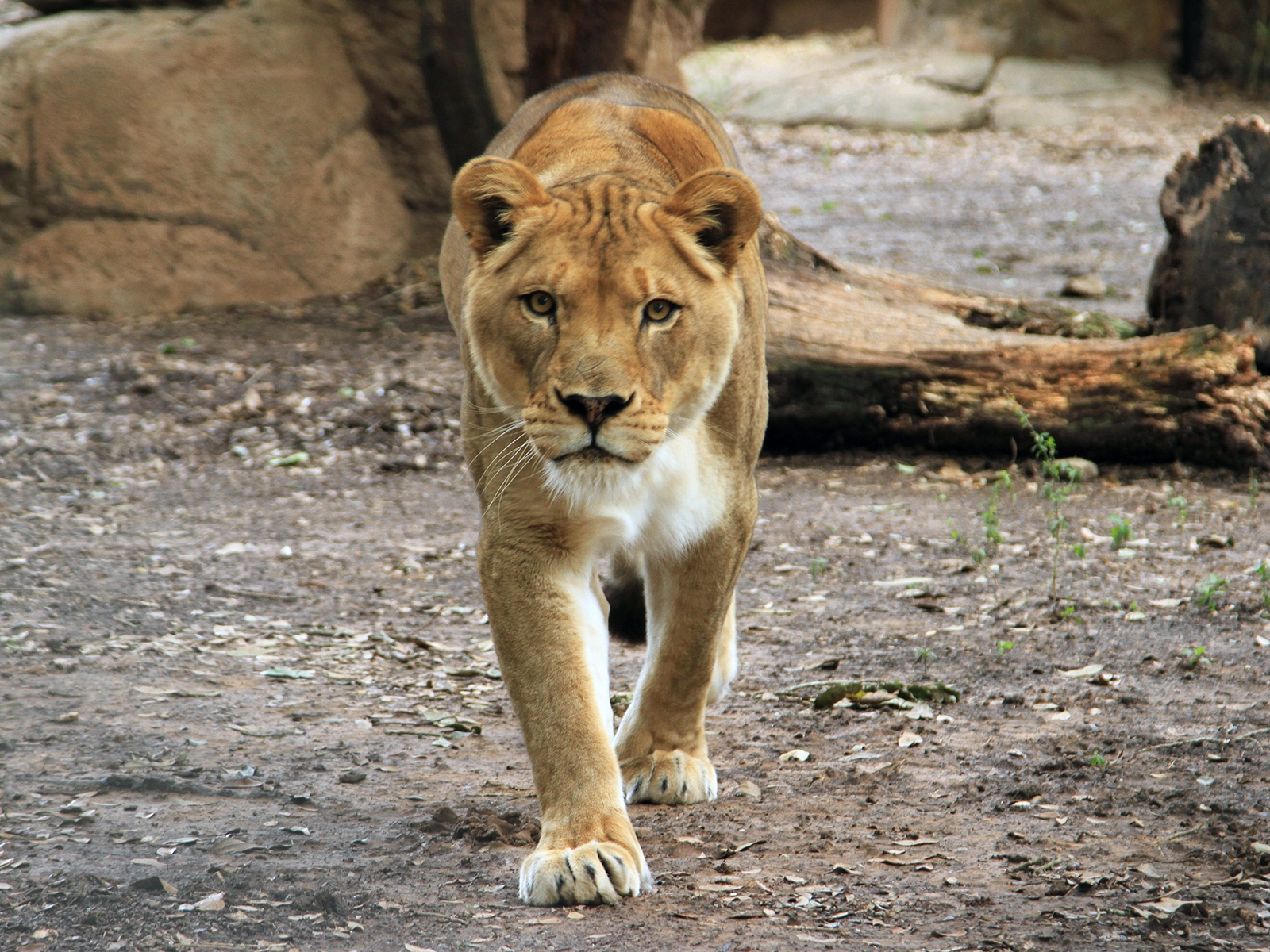
African lions are apex predators, playing a crucial role in maintaining a healthy and balanced ecosystem. Hunting is often a cooperative effort, with lionesses typically taking the lead in stalking and ambushing prey.
Although the females do most of the hunting, dominant males always eat first, lionesses next, and cubs scramble for scraps and leftovers. A single lion needs approximately 10-20 large animals per year to sustain it!
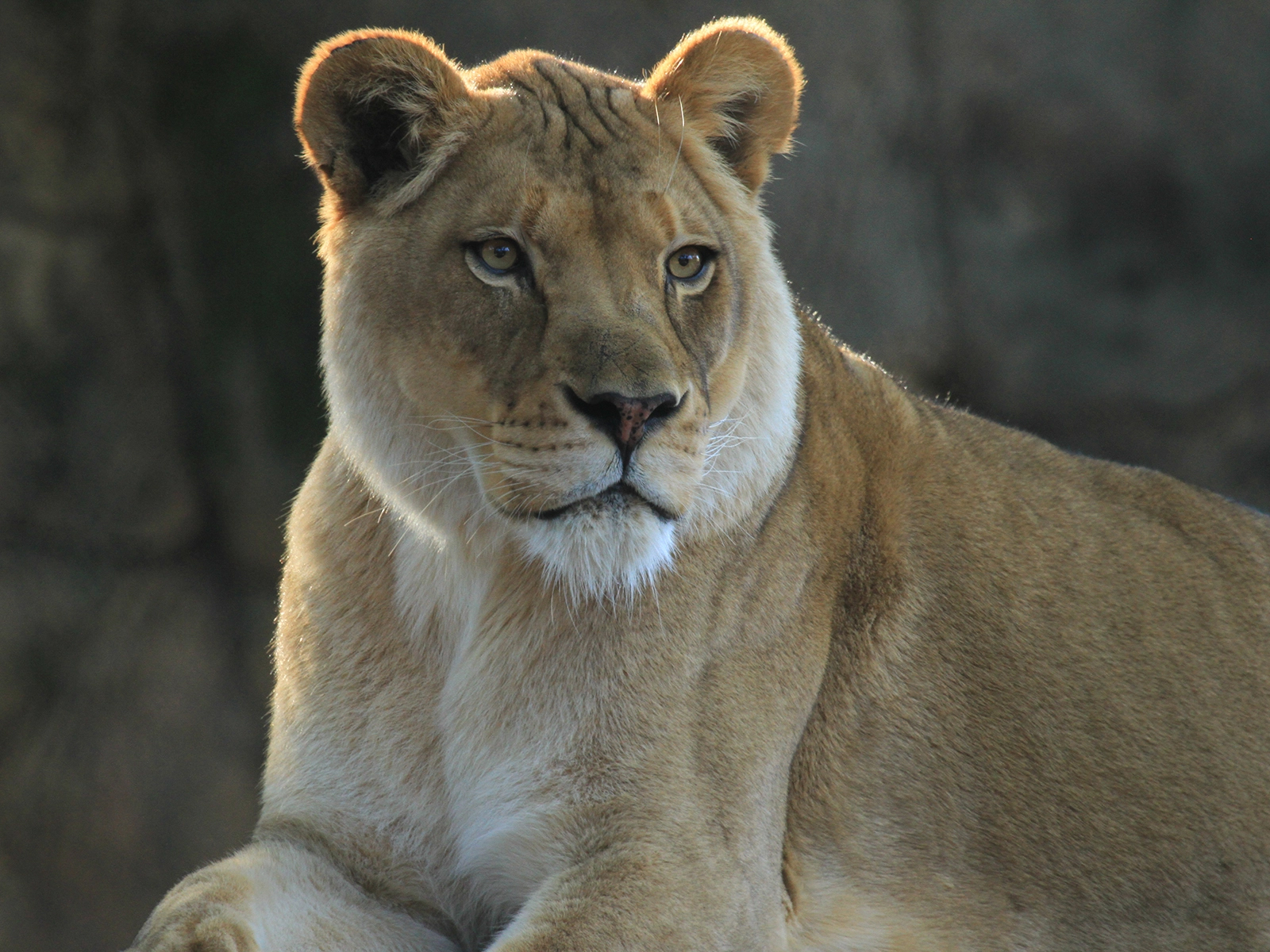
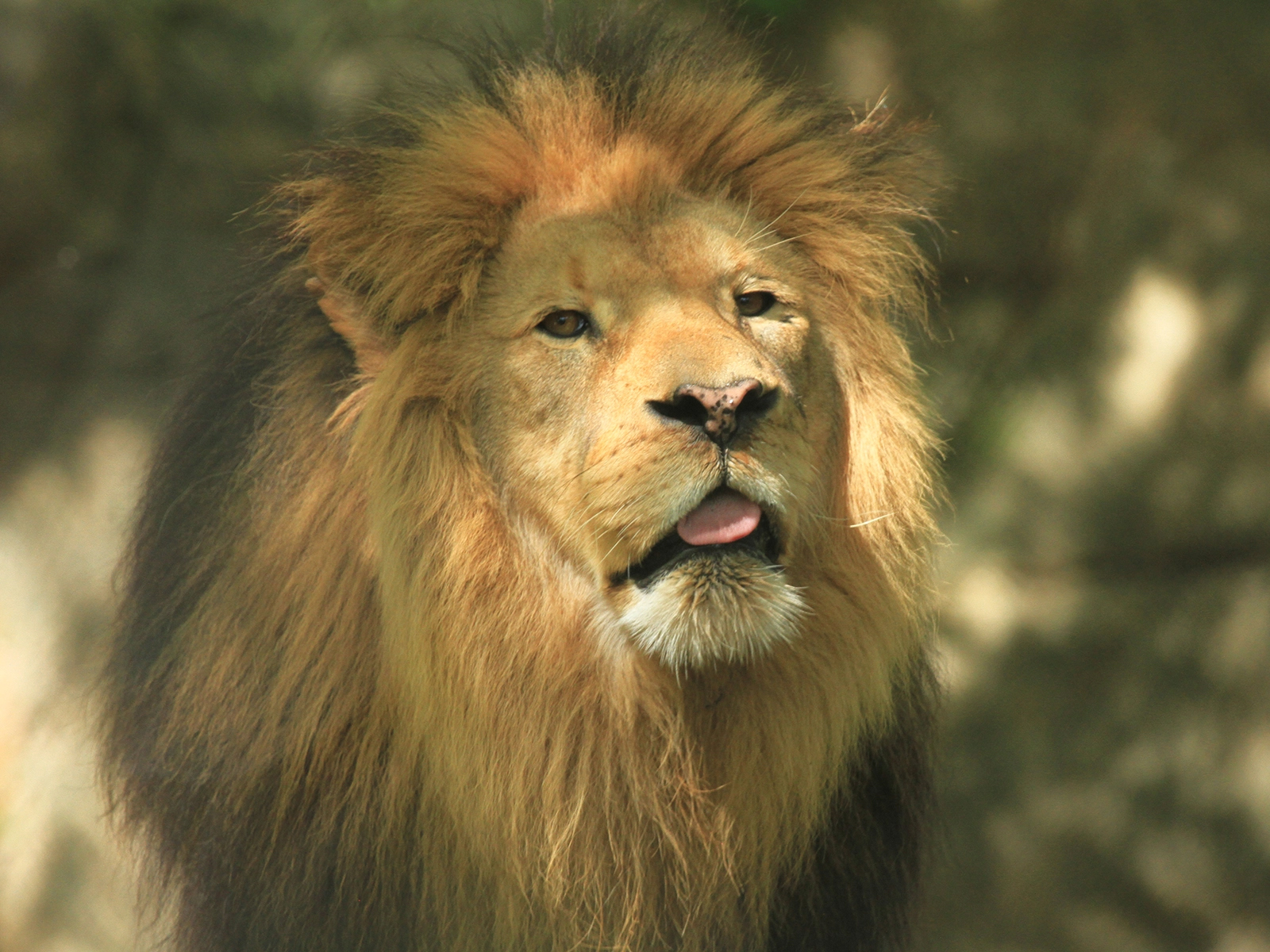
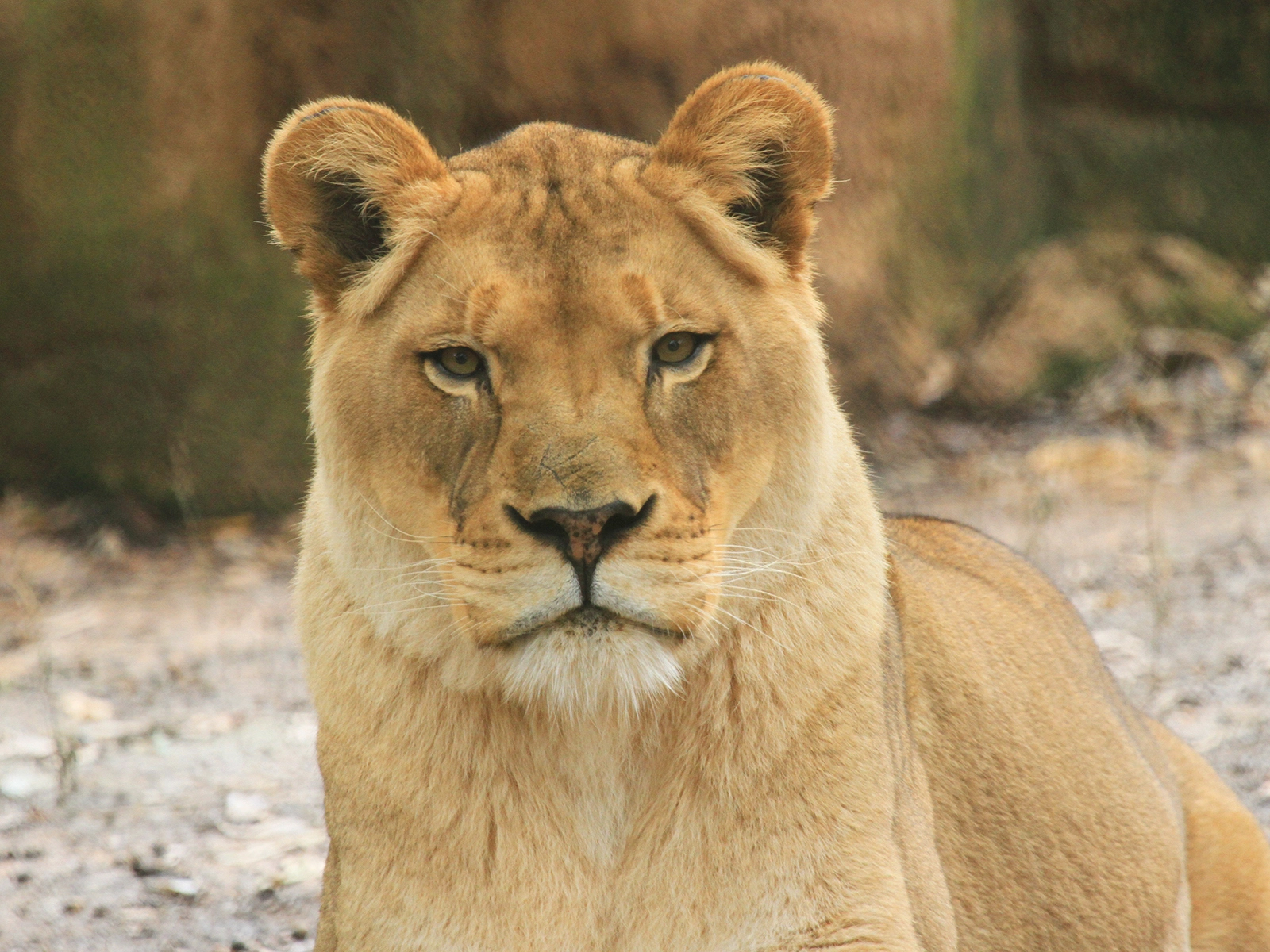
Educate yourself and others: Learn about the challenges facing African lions and share that information with your friends, family, and social networks.
Purchase wisely: Look for locally made goods and artisan products when traveling. This helps to support the economies of communities that live alongside lions, giving them a vested interest in the animals' survival.
Support sustainable tourism: If you travel to Africa, choose tour operators and lodges that actively support lion conservation and local communities. Ask questions about how they contribute to conservation efforts and whether they employ and benefit local people.
